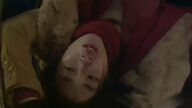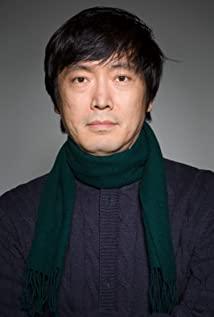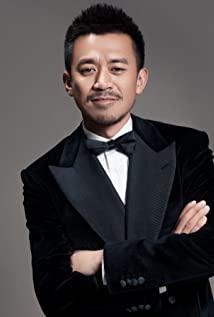In countless conversations with the director, I asked the director more than once: "Why don't you write novels?" The mainland lacks writers like him who understand both literature and narrative. If you write, you must be able to achieve great success. Moreover, while writing is something that can be done with a computer, film is one of the most expensive arts in the world, and you have to dance with money. As one of the members of the film crew, I admire the director, and as a creator myself, I am like a "third eye", and I have a lot of feelings, so let's explain it piece by piece. The following questions do not involve specific plots and can be read with confidence: 1. Why is Gui Lunmei the best candidate? Many viewers feel that it is inappropriate for Taiwan's Xiao Qingxin Gui Lunmei to play a woman from the Northeast. In fact, this is the result of the unanimous agreement between the filmmaker and the director: Gui Lunmei's presence in the Northeast brings a fresh and unfamiliar feeling, which is the main reason for her to attract men. reason. She was calm, silent, cold, and thin. The heroine in film noir is almost always a stranger to the town. We can imagine that she may be a southern girl, but she is trapped in the ice and snow in the north for various reasons. It's like the "Beauty Pageant" in "The Postman Always Rings Twice" is stuck in a "cheap diner". She is always looking for a new savior. Moreover, Gui Lunmei played so well: hidden in the environment, and so moving. 2. What did Liao Fan want to express in that long dance? When some audience members say that Liao Fan's dancing is a joyous and proud dance, I really don't know what went wrong and caused the misunderstanding. What was he doing before? He was participating in the celebration party, trying to laugh with others, but his expression couldn't hide the loneliness. Then he came to the ballroom, and in a conversation with a woman, we know that he hadn't been to the ballroom for a long time. In fact, it means: he was once addicted to the ballroom, until he met Gui Lunmei, and he was finally not interested in the ballroom. But now he is sinking again. He jumped up for himself, and the pain and self-torture contained in it was heartbreaking. Some people also mentioned the dance in Bong Joon-ho's "Mother", but these are obviously two concepts: the dance in "Mother" is too conceptual and symbolic. But Liao Fan's dancing is a more natural and reasonable move, full of not symbols, but emotions. In fact, film editing is a process of constant experimentation and exploration. The original English title of the movie is "Crows" Hunting, crow hunting. This meant that there was an important scene at the end: after the case was over, Liao Fan followed a group of people from the criminal police team to fight crows. This was the most difficult scene to shoot, but the director cut it out during the first cut and changed the English name. Emotions build up throughout the ending. The three stages of dancing, identification, and fireworks are constantly adjusted and transformed. One day I squeezed into a taxi with Wan Juan, the general manager of the film company who is also a producer, Wan Juan said, "Everyone is a little confused now, and at the end of the trial, the rhythm is a bit long. The part about Fan dancing was deleted, but I couldn't bear it. The first material I saw in the computer room was that he was dancing, and I cried." I said, "I really can't delete it. If I keep this part, Liao Fan may be in I won an award at the film festival." Wan Juan said, "I think so too." Pressure oppresses everyone. I remember watching the first cut in the company conference room, and my colleagues in the group fell silent. From the beginning, no one liked the movie. After the director changed the script for several years, it took us three years from preparation to finalization. In the past three years, people in the circle felt that we were "too literary" and "doesn't understand the market." Wan Juan had to explain to everyone: "I'm not a young woman in literature and art. What I want to do is to make a good movie at the box office." We It is also in a state of self-doubt and struggle with external doubts. In an interview after winning the award, Wan Juan once said to reporters: "Winning the award is not the focus of the film. The director has also been recognized by Cannes before, and it is still so difficult to find investment. Therefore, the director must sprint well at the box office. Better development space." 3. Why should we go to the cinema to watch literary films? One year in Hong Kong, we happened to be fortunate enough to watch the IMAX version of "The Master" with Director Huang Jianxin. After it came out, Wan Juan asked Director Huang: "Why do you want to make an IMAX version of such a literary film without a big scene? Director Huang said: "The actors are so good, you can see their most subtle performances on IMAX." Wan Juan said to me a few days ago: "I also made this movie myself, and then I realized that the more artistic it is, the more I want to go to it." Only when you watch it in the cinema can you feel the camera, light and shadow, and the performance of the actors." Then why do many mainland literary and artistic films not feel right when they are shown in the cinema? Because the cost is too low. Take the director's previous play "Night Train" as an example, the cost is more than 3 million, which is already a big investment in literary films, but the picture is obviously dark, and non-professional actors are not competent for the complexity of the role. The lack of money has made all aspects of production unable to keep up with today's audience's requirements for film quality. "Fireworks in the Day" is several times as much as the production investment, plus a 1:1 publicity This is about ten times the investment. So after winning the award, when the independent film industry cheered "The Light of Independence", it only made people think: how contempt for capital limits the pace of film creators. 4. Why is it "Fireworks in the Day"? "Fireworks in the Day" not only passed the censorship, won the golden bear, and the box office trend was acceptable, but also won the support of all parties including the leaders of the film bureau. Why is it? Because the hardest path was chosen from the beginning: Defining "Fireworks" should be a "good movie with a good box office", and this goal was never given up. That means: it has to pass scrutiny, it has to use the right stars, it has to do the right kind of publicity, it has to cater to the audience's tastes. Choosing either "box office" or "awards" is much easier than this. The setting of the premise determines all the working methods and paths, determines the countless pains and struggles in the middle, and struggles with the common sense of operation in almost all the film circles: difficult communication with creators; dealing with the system; and publicity and distribution Department of non-stop debate. And those films that excluded mainland audiences from the very beginning did not have to accept the test of the mainland market, which also led to films and audiences becoming farther and farther apart from each other: literary and artistic films became more and more ugly and sold more and more politics; audiences became more and more shallow and Lazy. 5. Where is the second "Fireworks of the Day"? At the same time that "Fireworks in the Day" was released, a strange movie was buying tickets at the box office. This unbelievable film, backed by a strange company, spent tens of millions in three days, and invited many film critics to endorse it. The good side and the bad side of Chinese movies meet in this way. In this regard, the industry is helplessly silent, and the media collectively lose their voice. There are countless times, Wan Juan said to me: "I don't want to make movies anymore." When immature Chinese movies are surrounded by hot money, what you see is not comedy, but desolation. "Find a rich boss to pay me to make a movie" is the director's wish; "find a best-selling book and find a big star to make a movie to make a lot of money" is the investor's wish. The aspirations of both parties are unprofessional, unrealistic, and cannot match each other. Where is the second Fireworks by Daylight? Where is the second person willing to spend 8 years writing a script? Where else can a second person go to great lengths to balance business and art, creativity and the system, without self-interest? Where else is another company willing to make a movie in the way of ants? It's not a nice story. It is, like Fireworks by Day, a questionable and sad story. ………………………………………………………………………… question. There are spoilers, so be careful. 1. Why did Zhang Zili become like that five years later? Even this is in doubt, showing how lazy the audience has become when watching movies. Zhang Zili had to retire to become a factory security because of injuries and the death of his colleagues. His only skill was invalid, and he could not build a new life. He could only drink all day long, wander around, and look at the elderly sitting on the bench from a distance: he had not yet entered old age, but just like the elderly, he was abandoned by life. Through the continuous progression of several events: losing the car, being reprimanded by the workshop leaders, and looking at the old man, the director has completed the delicate shaping of Zhang Zili's living conditions five years later. 2. Why is there a horse in the corridor? During the investigation of the neighborhood committee, the police suddenly saw a horse in the corridor. During the conversation, they learned that it belonged to a waste collector, and the waste collector had disappeared for several days. What is revealed here is the absurdity and danger of real life: people will disappear inexplicably, and the people around them don't seem to care, showing that the protagonists are in an unsafe environment. This passage was added near the start of filming, and the director mentioned Carver several times when he revised it: the horse is like "Peacock" in Carver's novel, and it also reminds one of the horror in "The Water Pool is So Close to Home". The film has a strong European and American literary quality that may make it difficult for audiences expecting ready-made answers. 3. Why was Rongrong, the owner of the dry cleaner, not killed? Gui Lunmei once said that the only moment she wanted to cry during the filming was when she was about to be taken away, and Wang Jingchun gave her a red scarf. In the unique "van-style prostitution" in Northeast China, Rong Rong, played by Wang Jingchun, can't do anything except touch and watch, which has already hinted at his flaws. At the same time, the laundromat is Gui Lunmei's last life support. But the dark place between people and people is precisely the scarf he blindly sent out when her heart was ashes. 4. Why can't Zhang Zili let Wu Zhizhen go? Since there is love, why can't you let her go? Of course, many people first thought of the issue of censorship, "Justice cannot let evil go." Censorship is another form of laziness, another monster that prevents creative progress. First, let's talk about the young man in the laundry who came to wash sweaters. Wu Zhizhen cut his finger, the young man came to wash the sweater, and Zhang Zili kicked him out, which made his relationship with Wu Zhizhen a step closer. But has anyone noticed Zhang Zili's strange snickering at the door of the laundry after driving away the young man? Why does he laugh so much? ...because this is just a scene he arranged to approach Gui Lunmei (no one has mentioned this detail yet). Zhang Zili's little smarts are useless in reality, but they always have a flash of inspiration when solving cases. As a loser, he has to do this to gain a sense of accomplishment and the courage to continue living. This was the reason why he couldn't let Wu Zhizhen go. 5. How to express the passion scene? Someone said: "It seems that after Zhang Zili and Wu Zhizhen kissed on the Ferris wheel, a passionate scene was cut, which seriously affected the look and feel and continuity of the film, making the latter less persuasive."... This is obvious is not seeing the point. The director once said: "How should a man and a woman sleep for a night? Let them have breakfast together." The key to revealing the passionate relationship between these two people is not to push around at minus 30 degrees, that's not important at all, it's important Yes: They sit together awkwardly and intimately for breakfast the next day. This has it all.
View more about Black Coal, Thin Ice reviews











